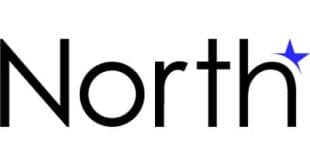The other day, I received a call from a financial institution whose board had directed management to pursue a mobile-payment solution. Management, however, thought that a different approach was more appropriate for the customer. Later, it struck me that our discussion could be a primer that other institutions might use in deciding about new payments products.
Let’s see what lessons we can learn about how to make a well-informed decision on offering—or not offering—a new payments product.
How Do You Know You Need To Offer a New Payments Product?
The two groups least-equipped to know what payments products a bank or credit union should invest in are the board and executive management. They are almost surely not representative of your broad customer base and may have different payment behaviors and comfort with technology. And both groups usually know way too much about payments.
Two other opinions you don’t need at this stage are those of the vendors of new payments systems and those of the media (mine included). So with these four sources of minimally useful influence abated, what is the best way forward?
The first step should be customer sensing and measurement, by whatever means are available: a survey, a focus group, or a careful look at product offerings of other banks or credit unions serving similar markets.
Let Your Competitors Help You
Just the simple fact that a competitor is offering new mobile product X or new small-business payment system Y doesn’t tell you much. You have no idea whether they are succeeding in terms of customer acceptance and revenue. And they aren’t likely to tell you, especially if the new product is failing.
What a competitor can shed light on is what your customer’s experience might be like if you were to offer a similar product. How? Just have some of your employees who are representative of your (not the competitor’s) membership or customer base sign up for the competitor’s new product and try it out. Do they like it? Would they pay for it? Have them try to break it. See if they could, in theory, defraud it. Ask yourself how much of a premium you would pay for it or if you’d only use it if it were free (meaning, of course, that your bank or credit union will lose money on it).
You can’t be sure that your experience will be like your customer’s. You can, however, discover what might go wrong, which can steer you away from certain products or give you a heads-up about what problems to expect if you offer a product.
Now, having tried out the competitor’s product, ask yourself if the potential upside is worth the risk of the known downside, a technique widely used in health-care and industrial settings, but often left out of banking-product evaluation.
Run an Instrumented Pilot
When you think you’ve decided on potentially the right product, set up a simple pilot. But be sure it is an instrumented pilot. An instrumented pilot eschews the users’ opinions about the product and instead collects hard data on how the product is actually being used. How many people sign up, try it out once or twice, but never use it again? In which payments scenarios do people seem to be using it, something you can deduce by looking at the time of day it is most used and the location (such as a merchant). Do you see any behavior that indicates unsuccessful use, such as abandonment after failed attempts? Is this correlated with other financial products these people use, or with the balances they maintain, or with specific customer demographics?
A consultant experienced in running instrumented pilots can help you learn a lot for not much time or expenditure, and it is usually very different information from what you will get by doing focus groups or surveys. Opinion can be somewhat predictive before the product is used, but behavior generally trumps opinion when measuring actual (and therefore likely future) use.
These two investigations—your own experience as a user of your competitor’s product and an instrumented pilot at your bank or credit union—might tell you a whole lot more than your board probably knows or than you may have thought you knew.
—George Warfel • gwarfel@wespayadvisors.com




